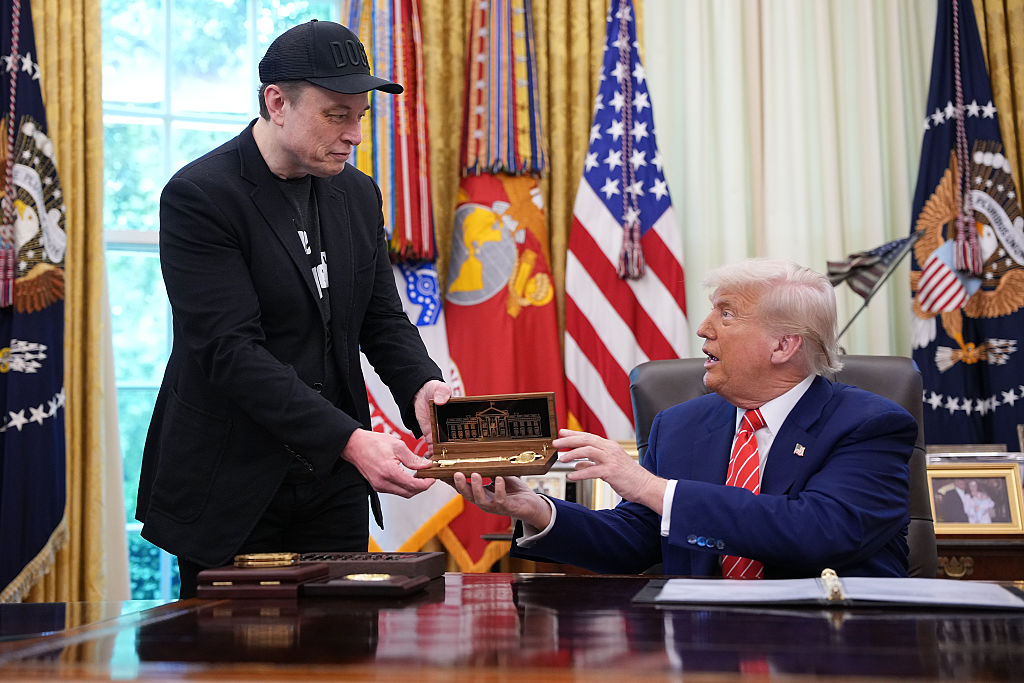The New Yorker’s cancellation of Steve Bannon’s appearance at the New Yorker Ideas Festival shows that the New Yorker has no idea what it is doing. Not because it invited Bannon to be interviewed on stage by New Yorker editor David Remnick, but because Remnick reneged on the invitation only eight hours later, and because the reneging was so hasty that it cannot be presented as a thoughtful statement of journalistic principle. It looks more like the result of panic and fear, the emotions that Steve Bannon, by his own admission, exploited so successfully in 2016.
If Steve Bannon is at the New Yorker festival I am out. I will not take part in an event that normalizes hate. I hope the @NewYorker will do the right thing and cancel the Steve Bannon event. Maybe they should read their own reporting about his ideology.
— Judd Apatow (@JuddApatow) September 3, 2018
The New Yorker in turn attempted to exploit Bannon’s whiff of sulphur. That was good business sense, and so was putting his name on the headline of the festival advertising. But it was too much for the sensibility of some of the other acts in the Ideas Festival. And acts is what they are. A festival of this kind is an intellectual entertainment. The performers get paid for taking part. Who really cares if deep thinkers like Judd Apatow and Jim Carrey won’t come because they’re on the same bill as Steve Bannon? Who, that is, apart from those, some of them writers for the New Yorker, who are spooked by the possibility of leftish celebrities not wanting to appear on their stage.
Bannon? And me? On the same program?
Could never happen.
— Jim Carrey (@JimCarrey) September 3, 2018
We might expect better, though, from the New Yorker writers who objected. We expect people on Twitter to demand the right to remain at all times in a warm bubble of mutual massage with people who think just like them. But journalists who claim to cover real life — and politics is still just about within that category — have a professional interest in listening to the unpleasant, looking at the ugly, and thinking about the unthinkable.
The Trump presidency was unthinkable for many Americans. Bannon is the person who thought it out, by mobilising the unpleasant and ugly side-effects of the American system. Much of the left-of-centre media now claims that Bannon is a has-been, now that Trump has no use for him. If so, then there is no great harm, and quite possibly much to learn, from inviting a historical figure — historical in that his significance, like his career, is in the past — into a citadel of left-leaning America, and subjecting him to an unscripted grilling in front of a hostile crowd.
The over-reaction suggests that the same left-leaning media fear that Bannon retains his magical power to spoil their party, just like he spoilt Hillary Clinton’s party at the Jacob Javits Center in November 2016. There isn’t much evidence that he does. Bannon has spent the last few months intriguing with the new nationalist parties in Europe. If you were of a fainting disposition, you could call that an attempt to subvert the norms of liberal democracy. Or you could call it a bit of freelance political consulting. Either way, it hasn’t amounted to much.
We don’t yet know whether Bannon was only the man for an hour that came and went, or whether his ideas and strategies have lasting purchase on American politics. Getting him on stage in New York might have helped to answer that question. David Remnick is not a stuffed shirt like Anderson Cooper. He’s a proper journalist of the old school. Bannon clearly isn’t stupid, either. He was crucial to outplaying the Clinton machine, perhaps the most successful operation in modern American politics.
Remnick would have given Bannon a serious intellectual testing. Bannon would have worked on Remnick’s blind spots, too. It would have been fascinating, in the way of Ali v. Frazier or Frost v. Nixon or Vidal v. Mailer. If all those bouts seem like ancient history, it is because they are. There isn’t enough serious, open engagement in American politics, and this had the potential to become a classic.After the cancellation, much tweeting was made about how the New Yorker, by inviting Bannon to its Ideas Festival, was ‘normalising’ or ‘mainstreaming’ various forms of extremism. This suggests that many on the left have yet to understand the nature of the shifts taking place around them. The mainstream is not the New Yorker (circulation in 2017: 1.23 million). The mainstream is the massive and raging torrent of social media (circulation frenzied and constant).
I’m out. I genuinely support public intellectual debate, and have paid to see people speak with whom I strongly disagree. But this isn’t James Baldwin vs William F Buckley. This is PT Barnum level horseshit. And it was announced on a weekend just before tix went on sale. https://t.co/oYk1llNgvV
— John Mulaney (@mulaney) September 3, 2018
And should comics in Hollywood, or tweeters with pseudonyms, or even staffers in the blue bubble of the New Yorker, get to determine ‘normality’? The old line goes that reality is a shared delusion. The same goes for democracy. The reality is that the United States, like many other Western liberal societies, is undergoing an ideological and political collapse. So normality is changing. If, as the New Yorker tells us, American democracy is in danger, then it might be worth engaging with the threat.
The idea that American normality changed overnight in 2016 to a point where the foolish predictions of Sinclair Lewis or Philip Roth are suddenly fulfilled is absurd. So is the idea that Steve Bannon is a dark magus who worked a wicked spell on the ordinary American, who in this scenario is benighted and stupid, and really quite incapable of appreciating the cartoons in the New Yorker. So is the notion that speaking with Bannon — who, unpleasant and ugly as he and his reading list may be, isn’t Lyndon Larouche or David Duke — will contaminate the New Yorker.
As ideas go, these are the kind of folly that could easily be despatched on stage at an Ideas Festival. But they won’t be. This is more than unfortunate. In his apologia, David Remnick reminded his readers and staff that he had called Trump’s election a ‘tragedy’. The severing of communication between left and right, and the casting of excommunications and curses across the void that used to be the center, contains the seeds of further tragedy. It is also profoundly self-defeating. As Bannon knows, and as he taught us all in 2016, to defeat your enemy, you need to get to know him. If you don’t he may even keep winning. And that’s an idea worth thinking about.
Dominic Green is Life & Arts Editor of Spectator USA.
























